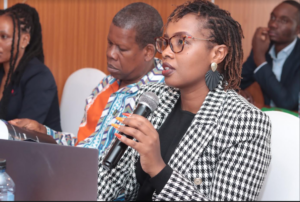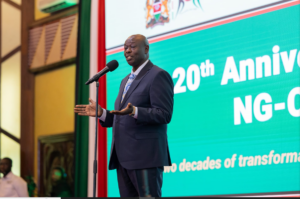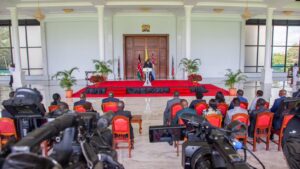High Court orders IEBC not to receive and verify BBI signatures
‘The motion will be mentioned via video link on 19 January 2021 for further directions on the determination of the substantive motion or for such other directions or orders as may be necessary,’ it further read.
By Mourice Seretta
The High Court has issued orders prohibiting the Chairperson of the Independent Electoral and Boundaries Commission (IEBC), by himself, his agents, servants or otherwise howsoever from receiving the partially collected signatures for the Constitution of Kenya (Amendment) Bill 2020 that do not include the voters from the Diaspora.
The orders by Honorable Justice Jairus Ngaah also prohibit the Chairperson of IEBC who is the 1st respondent in the matter by himself, his agents, servants or otherwise howsoever from commencing any verification of the partially collected signatures until it complies with the Court orders and avails the opportunity for voter registration of the Diaspora including the Applicants area in Dallas Forth Worth before holding any referendum of General Elections.
In the application of the matter by James Gitau Vs the Office of the Attorney General and Principal Secretary Interior and Citizen Services and five others, the court further orders that IEBC chairperson to desist from holding any referenda until IEBC complies with the Court orders from the Court of Appeal and the Supreme Court.
The court also issues an order of Mandamus to compel both speakers of the National Assembly and the Senate to confirm to the Court and the public the receipt of the periodic reports annually of the Diaspora Voter registrations from IEBC as contained in the Supreme Court Orders.
The court granted the applicant leave to file a substantive motion for the forgoing orders.
The prayer for leave to operate as stay of any action by the respondents in processing the collection of signature for the Building Bridges Initiative was refused by the court.
In order to expedite the hearing and determination of the substantive motion, the court directed that the substantive motion be filed and served to all parties within seven days of the date when the orders were issued.
The court also asked respondents to file and serve their responses to the motion within seven days of the date of service of the applicant’s motion.
‘The applicant is hereby granted leave to file any further affidavit to respond to any new issues that may arise from the respondents’ response on matters of fact,’ the ruling read in part.
‘The motion will be mentioned via video link on 19 January 2021 for further directions on the determination of the substantive motion or for such other directions or orders as may be necessary,’ it further read.







